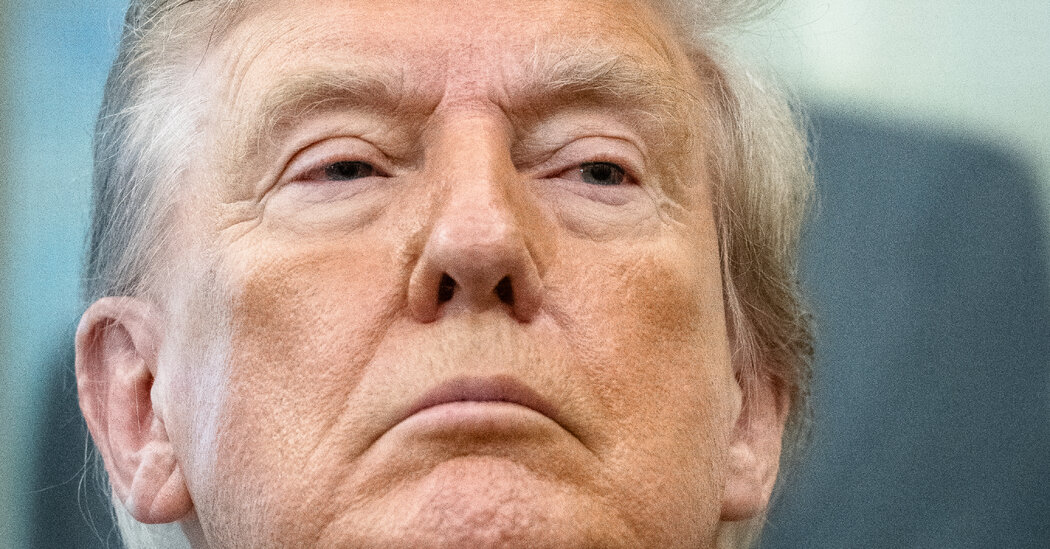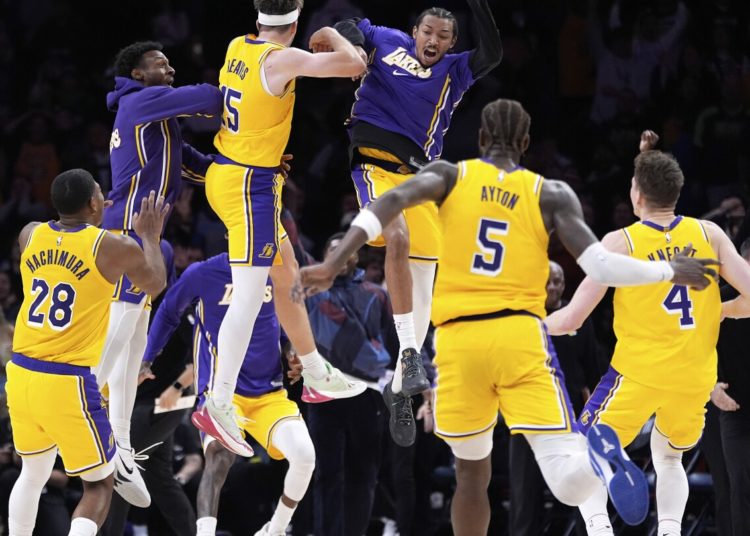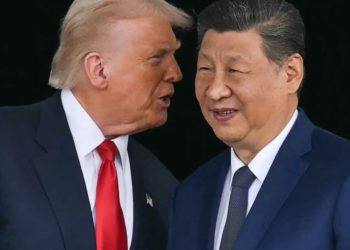Even before James B. Comey, the former F.B.I. director, was indicted this week, legal experts were already questioning whether the case might be vulnerable to an uncommon but powerful legal attack: allegations that President Trump, who has long called for Mr. Comey to be jailed, had pushed the Justice Department into opening an improper vindictive prosecution.
Such speculation gained at least a little steam this week after Mr. Trump weighed in on the charges, which center on whether Mr. Comey lied to Congress, in a manner that seemed to prejudge his guilt.
“Whether you like Corrupt James Comey or not, and I can’t imagine too many people liking him, HE LIED!” Mr. Trump wrote on social media on Friday morning. “It is not a complex lie, it’s a very simple, but IMPORTANT one. There is no way he can explain his way out of it.”
The remarks by Mr. Trump were not the first time he had shared — or over-shared — his opinions about whether Mr. Comey should be prosecuted, evincing what defense lawyers may seek to argue was a political animus by the Justice Department.
Last weekend, in an even more pointed social media post, Mr. Trump ordered Attorney General Pam Bondi to immediately get to work prosecuting Mr. Comey and two of his other enemies, Letitia James, New York’s attorney general, and Senator Adam B. Schiff, Democrat of California.
“They’re all guilty as hell, but nothing is going to be done,” Mr. Trump wrote, adding, “JUSTICE MUST BE SERVED, NOW!!!”
While vindictive prosecution motions are notoriously difficult to win, the president’s voluble vitriol and his incessant need to be on the attack could provide defense lawyers with an avenue to protect the very people he most wants to punish.
“Ironically, by demanding the prosecutions, Trump may have undercut any possibility of success by providing the people on his ‘enemies list’ with a built-in defense,” Joyce Vance, a former U.S. attorney for the Northern District of Alabama, wrote in a recent blog post on the subject.
There is a reason that prosecutors traditionally speak about cases soberly and only in court or through court filings: They do not want to give an appearance of bias that could prejudice a jury or provide a defendant with an opening to accuse them of harboring partiality or ill will.
Mr. Trump, a politician not a prosecutor, clearly does not subscribe to that tradition. But while he tends to run his mouth without much care for the consequences, legal experts seemed to agree that any attempts to use his words to prove that government prosecutors were biased could be far from a slam dunk.
“Trump’s being really crass and blatant about the ways he is talking about all that stuff,” said Samuel W. Buell, a former federal prosecutor who teaches at Duke University’s law school. “But I don’t know that that’s going to give rise to a motion that would invalidate a whole prosecution.”
Mr. Comey is the first of Mr. Trump’s prominent enemies to be indicted. He is facing charges in Federal District Court in Alexandria, Va., of making a false statement and obstructing a congressional proceeding in connection with testimony he provided to the Senate Judiciary Committee in September 2020.
Still, the president’s hostility toward Mr. Comey has been on display for close to a decade. Mr. Trump has called him the worst F.B.I. director in history, and a “liar” and “dirty cop” who “should be in jail.”
But while Mr. Trump’s targeting of Mr. Comey may appear to fit a kind of schoolyard definition of vindictiveness, the law imposes strict guidelines on the concept. There is also a high threshold to prove a related form of improper prosecution: that a defendant was selectively singled out to face criminal charges.
Under the law, a case is considered vindictive if defendants can show that prosecutors displayed animus toward them while they were seeking to vindicate their rights in court, and that the charges would not have been brought except for the existence of that animus.
Selective prosecution claims require defendants to prove, in effect, that prosecutors discriminated against them by failing to bring charges against “similarly situated individuals.”
Vindictive prosecution claims are often brought by defendants who say that prosecutors persuaded them to take a plea deal before surprising them by filing new charges. Many selective prosecution claims are brought by people saying they were discriminated against because of their race, gender or national origin.
Mr. Trump’s statements about Mr. Comey do not fit easily into either of those categories. But legal experts said they still expected lawyers for Mr. Comey — and any other Trump foes who also may be charged — to make use of vindictive and selective prosecution claims.
“It’s not like other cases where we typically see such claims, although that doesn’t mean it can’t fall within the concerns and the legal standards for vindictive and selection prosecution,” said Jessica Roth, a professor at Cardozo School of Law.
Lawyers in other high-profile cases involving defendants who have run afoul of Mr. Trump have filed similar motions in recent weeks.
Last month, Representative LaMonica McIver, Democrat of New Jersey, accused the Justice Department of prosecuting her both selectively and vindictively. In May, she was charged with assaulting a federal law enforcement officer during an oversight operation at an immigration detention center.
Her lawyers said that prosecutors had charged her with assault but had dismissed similar charges against several rioters who attacked the police at the Capitol on Jan. 6, 2021, after Mr. Trump issued them a broad grant of clemency. The lawyers also argued that the charges had a “retaliatory motive” and were intended to stop Ms. McIver’s “legitimate exercise” of “statutorily protected oversight responsibilities.”
A few day after Ms. McIver’s motion was filed, lawyers for Kilmar Armando Abrego Garcia, the immigrant who was wrongfully deported to El Salvador in March and returned to U.S. soil to face indictment, submitted a similar motion.
Mr. Abrego Garcia’s lawyers accused the government of bringing charges against him only after he fought his initial deportation. They also said administration officials had made incessant attacks against their client, calling him a “gangbanger,” “monster,” “illegal predator,” “illegal alien terrorist” and “human trafficker.”
Alan Feuer covers extremism and political violence for The Times, focusing on the criminal cases involving the Jan. 6 attack on the Capitol and against former President Donald J. Trump.
The post Trump’s Repeated Attacks May Undercut Case Against Comey appeared first on New York Times.




